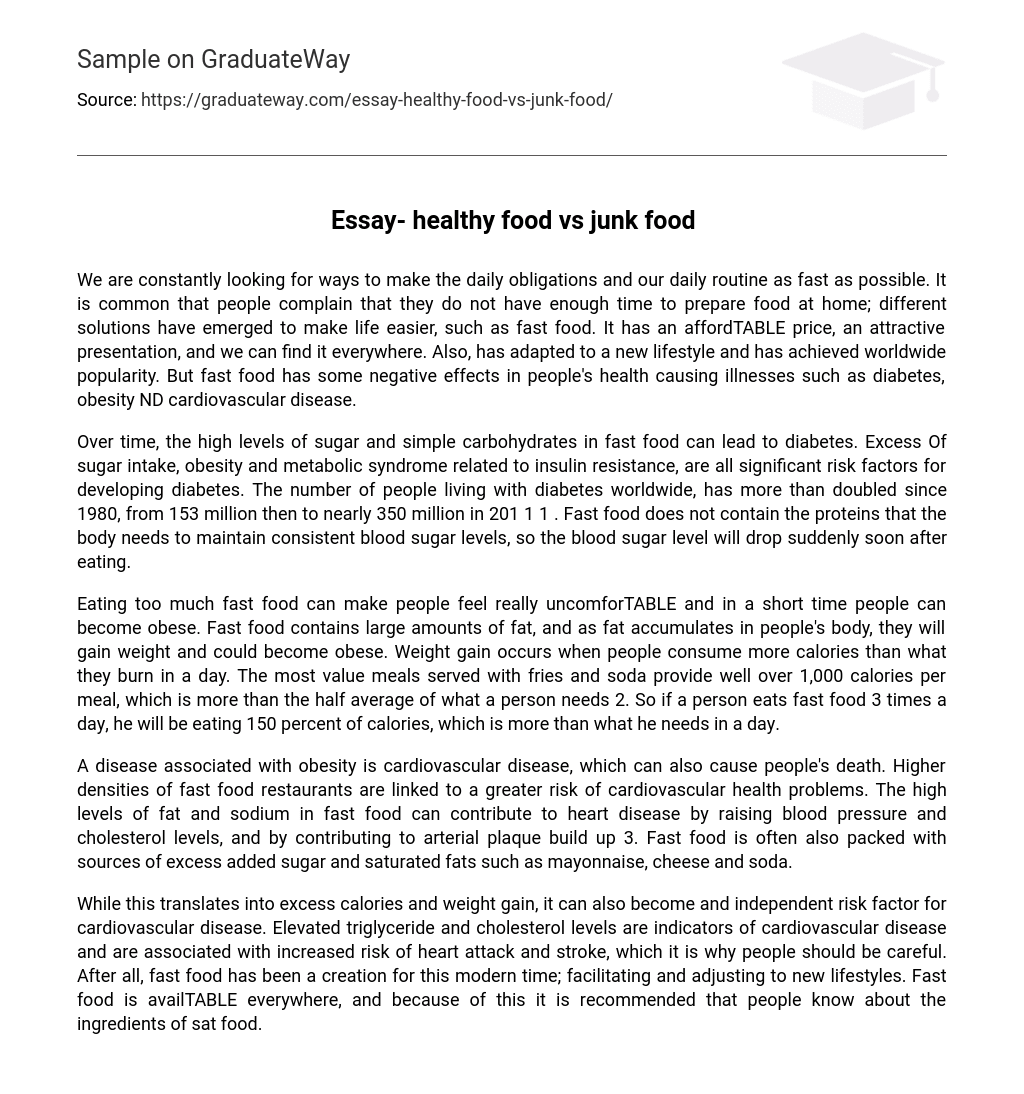As our schedules become busier, we constantly look for ways to simplify our daily tasks. Many people admit that they don’t have enough time to cook at home, which has led to the popularity of convenient options like fast food. Fast food is easily available, affordable, and visually appealing, making it a worldwide favorite. However, it’s crucial to acknowledge that fast food can negatively impact our health by causing conditions like diabetes, obesity, and cardiovascular disease.
Consuming fast food, high in sugar and simple carbohydrates, can raise the risk of developing diabetes. Factors like excessive sugar intake, obesity, and insulin resistance linked to metabolic syndrome all contribute to diabetes. The global prevalence of diabetes has substantially risen over the years, reaching nearly 350 million individuals in 2011 compared to 153 million in 1980. Moreover, fast food lacks sufficient protein for effective blood sugar regulation, causing sudden drops shortly after eating.
Consuming fast food, with its high fat content, can lead to discomfort and potentially obesity. Excess fat is stored in the body, causing weight gain and possibly leading to obesity if more calories are consumed than burned in a day. Value meals typically include fries and soda, which can contribute to over 1,000 calories per meal – exceeding the average daily calorie intake. Thus, consuming fast food three times daily would exceed the necessary calorie intake by 150%.
Obesity is connected to cardiovascular disease, a potentially life-threatening condition. The presence of multiple fast food restaurants in an area is correlated with an increased likelihood of experiencing heart-related problems. Fast food, due to its high fat and sodium content, can elevate blood pressure and cholesterol levels while also contributing to the buildup of arterial plaque. Additionally, fast food frequently includes significant quantities of added sugar and saturated fats such as mayonnaise, cheese, and soda.
While fast food is convenient and easily accessible, it can result in excessive calorie intake, leading to weight gain and an increased likelihood of developing cardiovascular disease. High levels of triglycerides and cholesterol can elevate the risk of heart attack and stroke. Hence, individuals must exercise caution and stay well-informed about the ingredients present in their fast food options.





